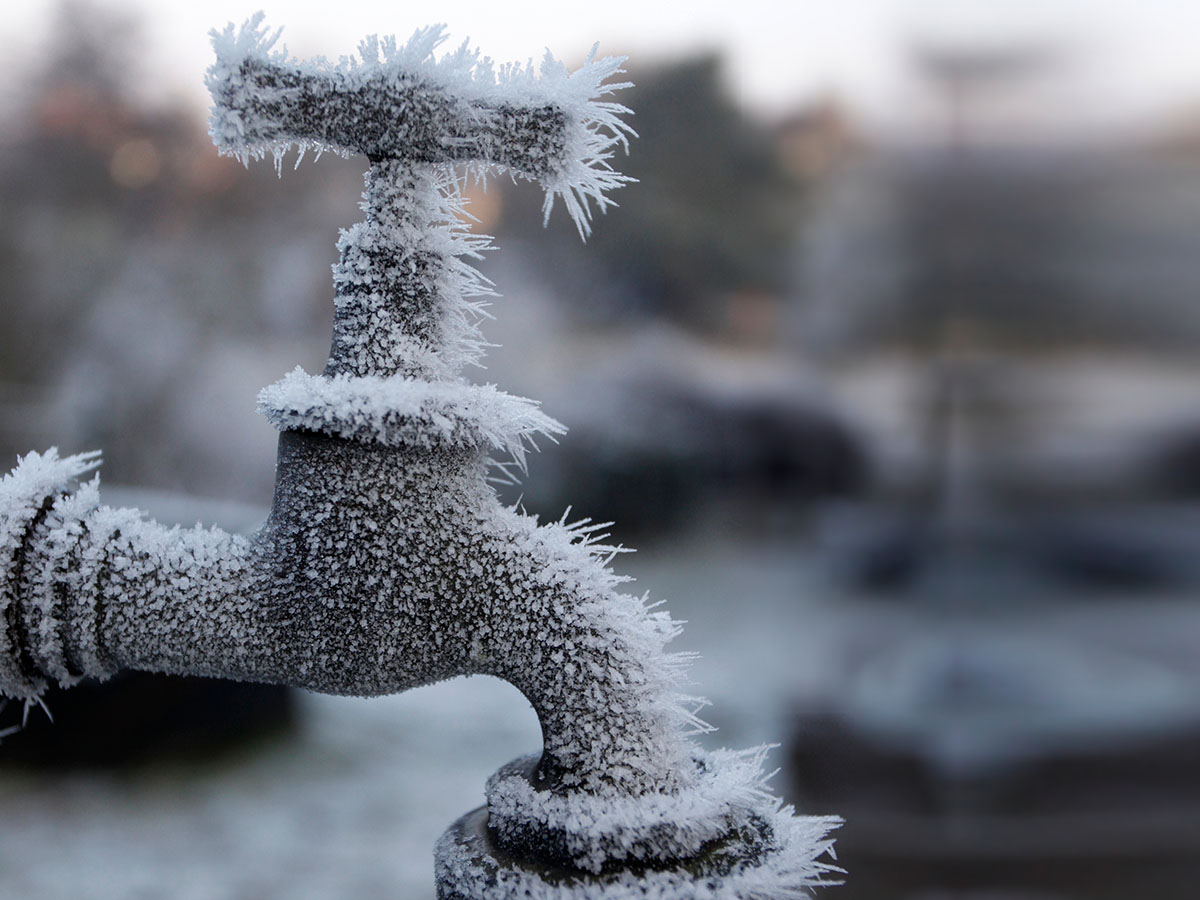Tips to Prevent Frozen Plumbing in Cold Weather: Professional Tips
Tips to Prevent Frozen Plumbing in Cold Weather: Professional Tips
Blog Article
What're your opinions concerning How to prepare your home plumbing for winter weather?

Cold weather can damage your plumbing, particularly by freezing pipes. Here's exactly how to avoid it from happening and what to do if it does.
Introduction
As temperature levels decline, the danger of frozen pipelines boosts, possibly resulting in costly repairs and water damages. Understanding exactly how to avoid frozen pipes is essential for home owners in chilly climates.
Recognizing Icy Pipes
What creates pipes to ice up?
Pipes freeze when revealed to temperatures listed below 32 ° F (0 ° C) for extended durations. As water inside the pipelines ices up, it expands, taxing the pipeline walls and possibly triggering them to break.
Risks and damages
Icy pipelines can result in supply of water interruptions, residential or commercial property damage, and costly fixings. Ruptured pipelines can flooding homes and create extensive structural damage.
Signs of Frozen Pipes
Identifying frozen pipes early can prevent them from bursting.
How to identify icy pipelines
Seek lowered water circulation from taps, uncommon smells or noises from pipes, and visible frost on exposed pipes.
Prevention Tips
Insulating vulnerable pipelines
Cover pipes in insulation sleeves or utilize warm tape to safeguard them from freezing temperatures. Concentrate on pipes in unheated or external areas of the home.
Home heating strategies
Keep interior areas appropriately warmed, especially areas with pipes. Open up closet doors to permit cozy air to flow around pipelines under sinks.
Shielding Outside Plumbing
Garden hoses and exterior taps
Disconnect and drain garden tubes before winter. Mount frost-proof spigots or cover outdoor taps with insulated caps.
What to Do If Your Pipelines Freeze
Immediate actions to take
If you suspect frozen pipes, maintain faucets open to eliminate pressure as the ice thaws. Use a hairdryer or towels soaked in warm water to thaw pipes gradually.
Long-Term Solutions
Structural changes
Think about rerouting pipelines away from outside wall surfaces or unheated areas. Add extra insulation to attic rooms, cellars, and crawl spaces.
Upgrading insulation
Purchase top quality insulation for pipelines, attic rooms, and wall surfaces. Proper insulation assists keep consistent temperatures and minimizes the threat of icy pipelines.
Conclusion
Stopping icy pipelines calls for aggressive actions and quick responses. By understanding the causes, signs, and preventive measures, property owners can shield their plumbing during winter.
Helpful Tips to Prevent Frozen Pipes this Winter
UNDERSTANDING THE BASICS: WHY PIPES FREEZE AND WHY IT’S A PROBLEM
Water freezing inside pipes is common during the winter months, but understanding why pipes freeze, and the potential problems it can cause is crucial in preventing such incidents. This section will delve into the basics of why pipes freeze and the associated problems that may arise.
THE SCIENCE BEHIND FROZEN PIPES
When water reaches freezing temperatures, it undergoes a physical transformation and solidifies into ice. This expansion of water as it freezes is the primary reason pipes can burst. As the water inside the pipe freezes, it expands, creating immense pressure on the walls. If the pressure becomes too great, the pipe can crack or rupture, leading to leaks and water damage.
FACTORS THAT CONTRIBUTE TO PIPE FREEZING
Low Temperatures: Extremely cold weather, especially below freezing, increases the risk of pipes freezing. Uninsulated or Poorly Insulated Pipes: Pipes located in unheated areas, such as basements, crawl spaces, or attics, are more prone to freezing. Insufficient insulation or lack of insulation altogether exacerbates the problem. Exterior Wall Exposure: Pipes running along exterior walls are susceptible to freezing as they encounter colder temperatures outside. Lack of Heating or Temperature Regulation: Inadequate heating or inconsistent temperature control in your home can contribute to frozen pipes. PROBLEMS CAUSED BY FROZEN PIPES
- Pipe Bursting: As mentioned earlier, the expansion of water as it freezes can cause pipes to burst, resulting in significant water damage.
- Water Damage: When pipes burst, it can lead to flooding and water damage to your property, including walls, ceilings, flooring, and personal belongings.
- Structural Damage: Prolonged exposure to water from burst pipes can compromise the structural integrity of your home, leading to costly repairs.
- Mold and Mildew Growth: Excess moisture from water damage can create a favorable environment for mold and mildew growth, posing health risks to occupants.
- Disrupted Water Supply: Frozen pipes can also result in a complete or partial loss of water supply until the issue is resolved.
WHY CERTAIN PIPES ARE MORE PRONE TO FREEZING
- Location: Pipes located in unheated or poorly insulated areas, such as basements, crawl spaces, attics, or exterior walls, are at higher risk of freezing.
- Exterior Pipes: Outdoor pipes, such as those used for irrigation or exposed plumbing, are particularly vulnerable to freezing as they are directly exposed to the elements.
- Supply Lines: Pipes that carry water from the main water supply into your home, including the main water line, are critical to protect as freezing in these lines can affect your entire plumbing system.
- Underground Pipes: Pipes buried underground, such as those connected to sprinkler systems or outdoor faucets, can be susceptible to freezing if not properly insulated.
https://busybusy.com/blog/helpful-tips-to-prevent-frozen-pipes-this-winter/

I discovered that content on How To Avoid Freezing Pipes while exploring the web. Do you know about anybody else who is very much interested in the niche? Take a moment to promote it. I value your readership.
Call Today Report this page